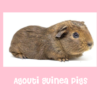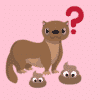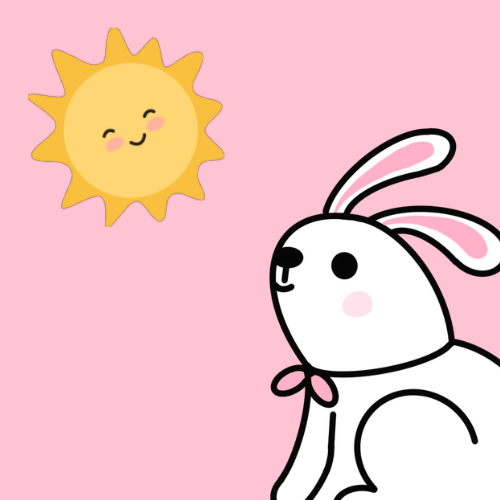Your cat has successfully given birth to her babies after going through pregnancy. It’s time for her to start caring for her kittens, but she cannot nurse them. Maybe she rejected a kitten, or you’re unsure whether her milk supply is enough. Sometimes a mother cat doesn’t care for her kittens. Why can a mother cat refuse to clean or feed her young?
Stress may be a factor in the lack of maternal instincts. Other than that, if the mother cat is in a place that is too loud, too busy, or seems dangerous, she may leave her kittens. In the wild, this threatens the kittens’ lives, but it also allows the mother cat to have many litters later.
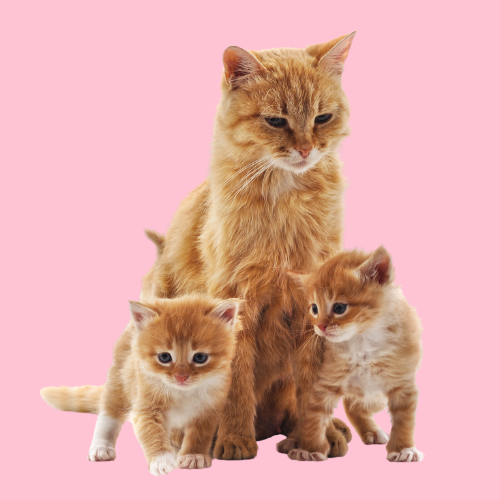
Usually, the mother cat will care for her kittens naturally. As mammals, cats have a strong innate need to nurture kittens, which is a natural part of their development. However, nutritional difficulties might make a mother cat act odd after giving birth.
Mother Cat and Kittens
All mother cats share the common practice of often relocating their newborn kittens in the first few days of life. If too much light or the mother cat feels unsafe, she’ll shift her kittens. The temperature is another factor that worries mother cats. Younger moms are more likely to transfer their kittens more frequently, and first-time mothers had increased anxiety levels compared to more experienced mothers.
If you have a mother cat, you may want to provide her and her kittens with a quiet, distraction-free space. If you want to provide a safe place for the mother cat and her kittens, clearing out a closet or cabinet or placing a box in a quiet area would be ideal. That would also let you observe the mother cat’s behavior after giving birth.
Let the mother cat decide whether or not to relocate her kittens. It would be normal for her to relocate them, and she probably will do so more than once. She might be doing this to try to hide the smell of the kittens from any predators that might be around.
Why Is the Mother Cat Not Cleaning Kittens?
A mother cat will lick her newborn kittens quite roughly most of the time. The amniotic fluid and the membrane around the kitten need to be removed to allow the cat to breathe. The vigorous licking also improves the circulation of the kitten. In addition, the mother will gnaw the umbilical cord off each of her kittens.
But sometimes, this natural behavior doesn’t happen, and you might have to help. You should remove the amniotic sac if it does not come off on its own or if the mother cat cannot lick her kitten well enough to do so. However, in most cases, it is preferable to let the mother cat complete this task independently and at her own pace.
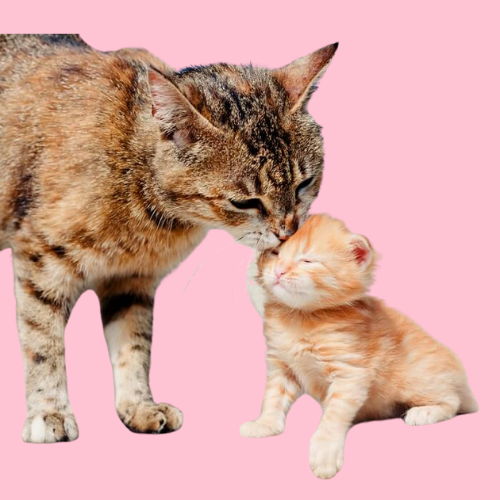
The fact that a mother cat does not clean her newborn kittens after giving birth might be an indication that she is under a lot of pressure. The mother may also be aware that one of the kittens has a potential health issue; however, she may disregard this information to concentrate her attention on the kittens that have the best chance of surviving. Check to see that she is getting sufficient amounts of both to eat and drink. If you notice that she isn’t taking care of any of her kittens or is spending a lot of time away from them, you might want to call your vet.
Why a Mother Cat Can’t Feed Her Kittens?
There are many reasons why a mother cat might not be able to feed her kittens well. In certain situations, the mother cat will begin feeding, but then she will stop. Sometimes the problem isn’t with the mother cat but with one or more of the kittens. When there are a lot of kittens in a litter, they have to fight for time and space to nurse, which can make these problems worse.
If something similar occurs, the first thing you should do is get in touch with your veterinarian. A mother cat’s inability to milk her kitten can be remedied if the underlying cause is identified and treated. Alternatively, you could have to take responsibility for caring for the kittens on your own. In any case, your veterinarian can help you.
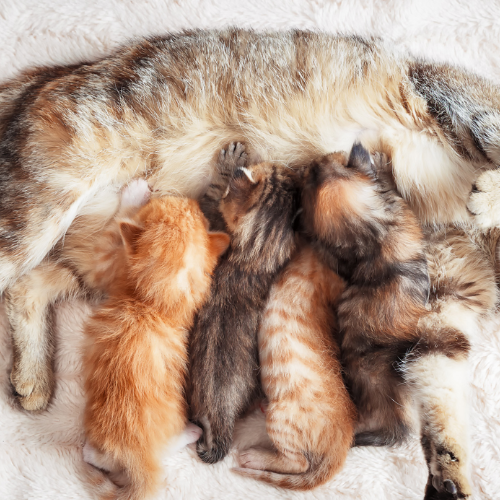
The Mother Cat Is Immature
Cats can get pregnant as young as four months old, and they might have their kittens between the ages of 6-7 months. These kittens are much too young to have a litter of their own. If a cat has recently given birth and is unsure what to do with the kittens, it may bring them to you in the hopes that you might assist it.
Some of the new parents may hiss at their offspring or quickly flee the nest immediately after the birth of their young. Unfortunately, inexperienced mothers can suffocate their kittens. When they feel uncomfortable and agitated, some cats may sit on their kittens to conceal them from the world, even though they run the risk of accidentally suffocating their young.
Sick or Deformed Kittens
The mother cat can recognize or think that one or more of her kittens has a health condition and therefore choose not to nurse that particular kitten. She may remove the sick kitten from the nesting box in an instinctual effort to safeguard the health of the remaining kittens. The issue might be a significant sickness, a visible congenital defect, or something less noticeable. It is not likely to be successful in putting a kitten that has been rejected back into the nesting box, and doing so may cause the mother even more grief. Consult your vet on how to bottle-feed and warm the rejected kitten while you schedule vet appointments.
The Mother Doesn’t Have Milk
A mother cat might sometimes not have enough milk to feed her kittens. She is possibly unable to produce breast milk due to a genetic disease, physical flaws, or starvation. Extreme stress could also stop a female cat from nursing because she lacks enough oxytocin, the “happiness hormone.” The mother may stop nursing certain kittens in large litters because she doesn’t have enough milk.
Large Litter of Kittens
Sometimes, a mother cat gives birth to a litter that is so enormous that she does not have sufficient teats to feed all of her babies simultaneously. It’s also possible that she won’t produce enough milk to satisfy everyone’s needs. Some kittens may be rejected by their mother if they become too sick or weak to compete with the larger, stronger kittens. Any kittens who appear underweight, are nursing less often, or are isolated from the rest of the litter should be fed with a bottle. Maintain a warm environment for them, and get in touch with your veterinarian as early as possible.
Lack of Maternal Instinct
Some cats just do not have what it takes to be good parents, just like any other mother on earth. When a mother cat dies or abandons her kittens, it is common for another female cat to take over. Obviously, this isn’t possible if you don’t have many female cats in your group.
Some females take a little longer to transition than others, so don’t worry too much if it’s taking her a second to figure things out. You can attempt to interfere if you feel it’s necessary, as this can be a significant milestone for many women expecting their first child.
A lack of maternal instinct in a mother cat can result in malnourished offspring, which can have devastating effects. If you can’t get her to care for the kittens even a little bit, you might have to do it yourself until they can eat solid food.
- Can Cats Eat Syrup? – Tips and Advice
- What Smells Do Cats Hate?
- Why Do Cats Bring You Their Kittens? [Full Explanation]
- The Best Bone Broth for Cats in 2022 [Complete Guide]
Will a Mother Cat Leave Her Kittens if They Are Touched by a Human?
One of the myths believed to be confirmed by the vast majority of people is that if you pet a mother cat’s kittens, she will abandon them. That’s not why cats don’t like their offspring.
When someone touches a mother cat’s kittens, the mother may shift them away from the person or to a safer location. During the procedure, the mother might accidentally overlook one of the kittens or return for it long later. You might think the mother has given up on her babies.
Brief handling of the young shouldn’t be an issue as long as the mother doesn’t lash out at you with her teeth. In addition to this, kittens require sociability. Kittens will develop a negative attitude toward people if they are not handled frequently while young.
How to Comfort Your After She Gives Birth?
It is possible that your cat will not exhibit any indications of being in discomfort when she is giving birth to her kittens. She might be under a lot of pressure, though, and her behaviour might change. She’ll be exhausted and anxious when she gives birth to her kittens. The tips below should help you make your cat feel better.
- Be very quiet around the cat and her kittens, and make sure they have a warm, safe place to live.
- If the mother cat is initially neglecting the kitten, it is best to apply some birth fluids to the kitten to encourage the mother cat to accept the kitten.
- If the cat is uncomfortable, she will attempt to move to a new one. Ensure that she has access to a separate location that is both warm and secure.
- If the cat throws up or drinks an abnormally large amount of water, you should take your pet to the veterinarian.

Veterinarian (DVM, MS) Content Writer, Blogger, and WordPress Developer. Working as a pet/animal/bird/fish/reptile/wildlife writer for the past 7 years on many renowned platforms.

